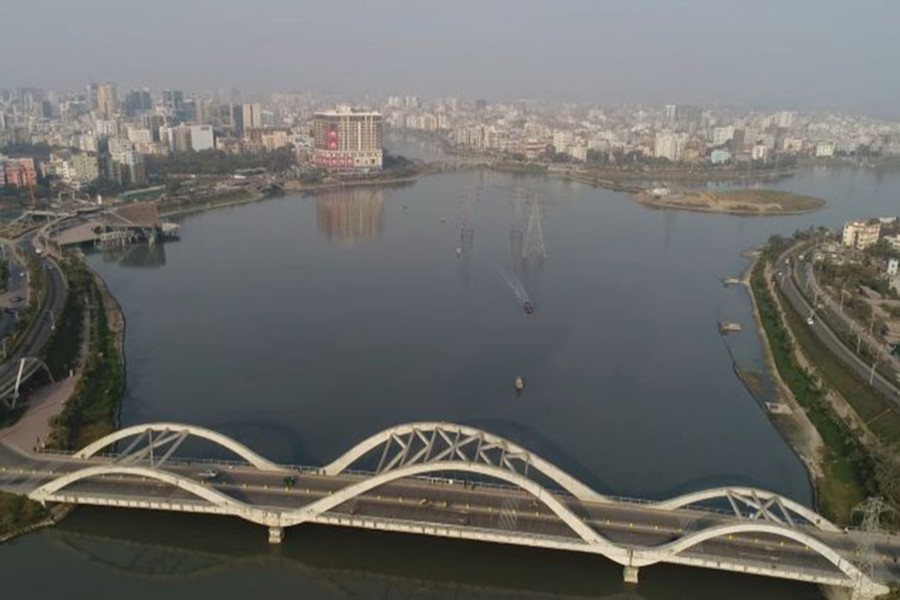Bangladesh "on a mission" as WB tells the story of development journey

Published :
Updated :

A relatively young country having gained independence a little over 50 years ago, Bangladesh has still made exceptional strides in reducing poverty and boosting shared prosperity over the last five decades, says the World Bank.
It narrates the story of Sadia Afrin, a Bangladesh girl who has her eyes squarely set on her dream job, and is combining a passion for graphic design, cartoons, and information technology in the hopes of becoming a professional animator. Just one generation ago, this dream would have rested beyond the realm of possibility.
Growing up, her father happened to be a migrant worker in Saudi Arabia and her mother was a stay-at-home parent.
“I first saw a computer and learned how to operate it at the Dhaka Mohila Polytechnic Institute,” she was quoted to have said. It was there that she first learned how cartoons could be created digitally.
“It is my dream to visit Japan one day and work in the field of animation,” she says.
Sadia is one of 40,000 low-income female students throughout Bangladesh who has benefitted from the World Bank-supported Skills and Training Enhancement Project (STEP), which has invested in 45 technical institutes to both improve female-inclusion and deliver industry-relevant skills, says the global agency in a latest publication.
This project, it adds, represents one of the many ways Bangladesh is investing in education and jobs—transforming its economy by doing so.
When the newly independent Bangladesh was born on December 16, 1971, it was the second poorest country in the world—making the country's transformation over the next 50 years one of the great development stories, the WB mentions.
Since then, according to the WB, poverty has been cut in half at record speed. Enrollment in primary school is now nearly universal. Hundreds of thousands of women have entered the workforce. Steady progress has been made on maternal and child health. And the country is better buttressed against the destructive forces posed by climate change and natural disasters.
Bangladesh’s success comprises many moving parts — from investing in human capital to establishing macroeconomic stability, says the agency adding, building on this success, the country is now setting the stage for further economic growth and job creation by ramping up investments in energy, inland connectivity, urban projects, and transport infrastructure, as well as prioritising climate change adaptation and disaster preparedness on its path toward sustainable growth.
“With its strong growth performance, Bangladesh is well poised to achieve its vision of becoming a high-income country by 2041,” AHM Mustafa Kamal, Minister of Finance, was quoted to have said.
“The World Bank has been a committed partner in our development journey. Its financing and technical support have been important for achieving broad-based development outcomes.”
At the heart of this cooperation between the World Bank and the government of Bangladesh is the International Development Association (IDA)—the World Bank’s fund for the poorest countries—which began its partnership with Bangladesh in 1972 and is now the country’s largest development partner, having committed about $36 billion in grants and zero and low-interest loans in support of 271 projects. Bangladesh is currently the largest IDA-funded country in the world.
“IDA was a young institution when we began working in Bangladesh and we have learned so much about what works—and what doesn’t—during our partnership,” said Mercy Miyang Tembon, World Bank Country Director for Bangladesh and Bhutan.
“The knowledge gained from that experience has, in turn, helped many other countries to reduce poverty and boost shared prosperity. Bangladesh has confronted considerable challenges along the way, from the battering of seasonal cyclones to the spread of Covid-19. As the stories that follow demonstrate, Bangladesh’s progress in the face of these hurdles is a testament to the perseverance of its people and the power of partnerships, says the global lender.


 For all latest news, follow The Financial Express Google News channel.
For all latest news, follow The Financial Express Google News channel.